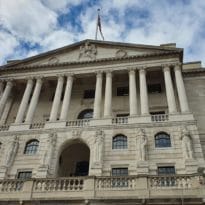The UK’s ageing population could add up to £47 billion to UK GDP a year by 2040, a report by the International Longevity Centre has revealed.
According to its latest research, older people will be spending 63p in every pound spent in the UK economy by 2040, rising from 54p in 2018.
Households headed by someone aged 50 and over have dominated total expenditure since 2013 and the ILC said this trend will continue with spending by older consumers set to rise significantly over the coming decades from £319 billion of total consumer spending in 2018 to £550 billion by 2040.
The findings also showed that those over 50 are shifting their spending towards non-essential purchases, with the three fastest growing sectors being recreation and culture; transport; and household goods and services.
The over 50s are also making a significant contribution to the economy through their work, accounting for nearly a third (32%) of the workforce in 2018 and earning 30% of total earnings. By 2040, they are expected to account for 37% of those working, making up 40% of total earnings.
However, the think tank warned that the “enormous” economic opportunities presented by older people are being neglected, with a large number of people facing barriers to working and spending in later life.
According to the ILC, supporting people aged 50 and over to remain in the workforce could add an additional 1.3% to GDP a year by 2040 and tackling barriers to spending by people aged 75 and over could add 2% to GDP a year by 2040.
David Sinclair, director, ILC, said there are huge gains to be made by individual businesses and for the wider economy if the UK takes steps to unlock the spending and earning power of the older generations.
He said: “We’ve become accustomed to hearing our ageing population talked about as a bad thing – but the reality is it could be an opportunity. However, we won’t realise this ‘longevity dividend’ through blind optimism about ageing. Instead, we need concerted action to tackle the barriers to spending and working in later life.
“We need action to make sure our extra years are healthy years, we need accessible high streets and workplaces that are free from age discrimination and we need continued action to ensure that people have access to decent pensions in later life.”
He added: “Realising the longevity dividend will require decisive action – of the kind we’ve yet to see from either business or government. For all the talk of baby boomers dominating politics, we’ve yet to see a serious response to the opportunities and this needs to change.”




































